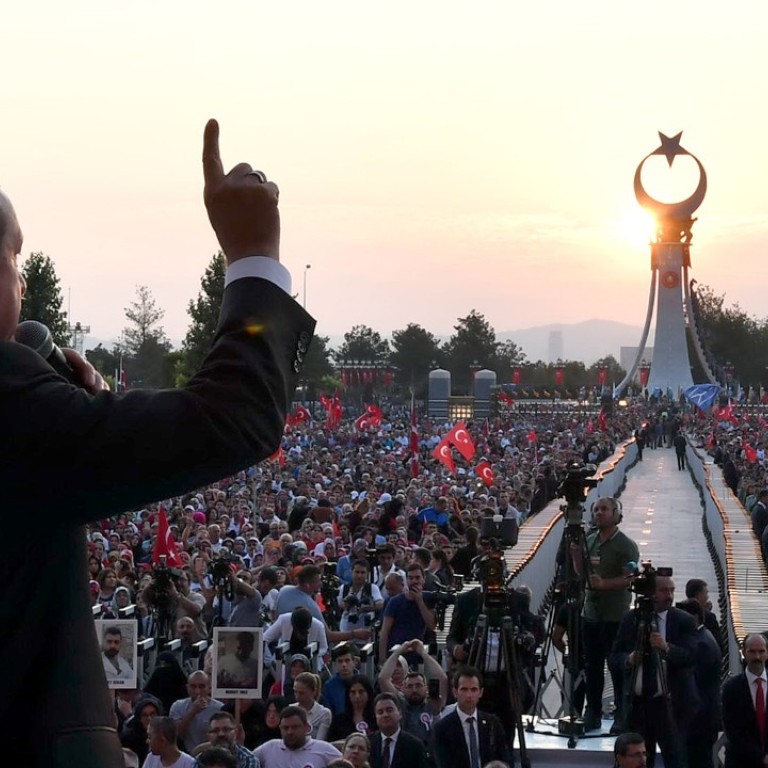Advertisement
Advertisement

Turkey needs unity and reconciliation, not vengeance
President Recep Tayyip Erdogan is still pursuing those he says are behind a coup against him last year, but is dividing the nation at a time when it faces threats that require unity
The first anniversary of an attempted coup against Turkey’s government should have been about unity in the divided nation. Instead, President Recep Tayyip Erdogan used the occasion to further his political agenda, labelling those who oppose his rule traitors and seeking vengeance. In the wake of more purges of state workers he maintained were supporters of the plotters, he backed a return of capital punishment so that convicted conspirators could be beheaded. It is a dangerous course to take for a nation that faces so many threats.
More than 240 people, many of them civilians, were killed and thousands more injured preventing rogue soldiers from seizing power on July 15 last year. They did not want a return to military dictatorship and put their lives at risk to protect democracy. But Erdogan has used the failed coup to strengthen his political hand.
With a state of emergency imposed, the government has cracked down on those it says are coup supporters, arresting 50,000 people and dismissing 150,000 state workers. Such turmoil was the backdrop for a constitutional referendum in April, called and narrowly won by Erdogan, that dramatically increases his powers. It will merge the offices of the heads of state, government and the ruling party, allowing for few checks and balances.
Islamic cleric Fethullah Gulen, a former ally of the president who fell out with him and now lives in self-imposed exile in the US, is accused of being behind the coup. He has denied the allegation and Washington has refused requests for his extradition. But the religious conservative Erdogan has many other rivals, among them leftists, nationalists and Kurds.
Turkey is also threatened by extremists such as Islamic State, who have brought the violence of neighbouring Syria and Iraq to Turkey through attacks that have killed hundreds in recent years.
Erdogan’s strategy is dividing the nation and distancing allies. His support for capital punishment puts him at odds with the European Union, damaging Turkey’s membership chances. Instead of trying to crush and eliminate his opponents, he should be making peace with them to unify the country against the threats it faces.

Post
